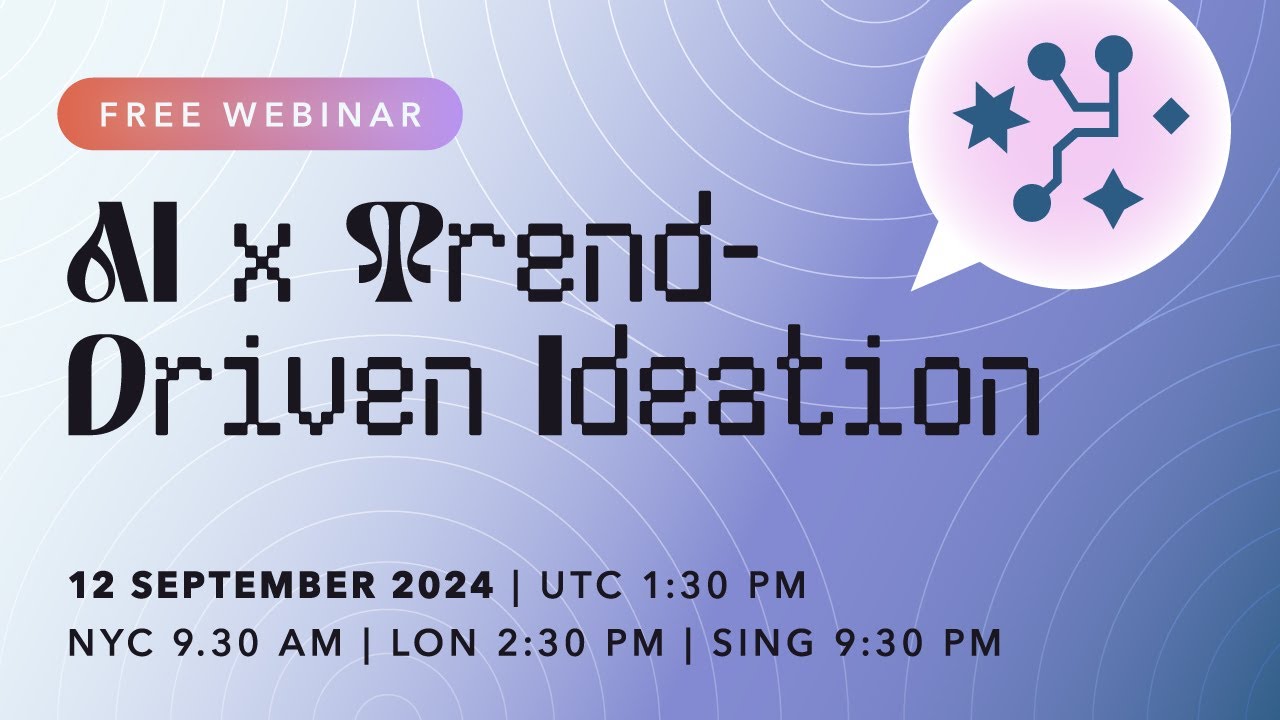The AI Governance Challenge | PulumiUP 2024
Summary
TLDRIn this session, Paa Kalahan, a technical director at Charles River Laboratories and a Google Developer Expert, discusses the importance of AI governance in scaling AI across organizations. He emphasizes the need for ethical and responsible AI use, highlighting the role of governance frameworks in ensuring transparency, compliance with legal standards, and risk management. Kalahan also explores the current global landscape of AI regulations, including the EU AI Act, and outlines the stages of AI adoption within organizations, from exploration to strategic integration.
Takeaways
- 🤖 AI governance is crucial to guide the ethical, transparent, and responsible use of AI in organizations.
- 💼 AI governance ensures AI systems align with organizational values, legal standards, and societal needs.
- 🚀 AI adoption has exploded in recent years, but businesses face challenges in implementing AI effectively.
- 🌐 The global regulatory landscape is evolving rapidly, making AI governance more important than ever.
- 📜 Key AI regulations include the OECD AI principles, G20 AI principles, UNESCO's AI ethics framework, and the EU AI Act.
- 🔍 AI governance involves managing risks such as bias, unethical use, and regulatory non-compliance.
- ⚠️ Without AI governance, organizations risk reputational damage, legal issues, and inefficiency in AI projects.
- 💡 AI governance should be a multidisciplinary effort across all business units, integrating with existing governance structures.
- 📊 Effective AI governance focuses on data quality, reducing complexity, and balancing innovation with control.
- 🏢 The AI adoption journey progresses from exploration to strategic integration, with governance needed at each stage.
Q & A
What is AI governance, and why is it important?
-AI governance refers to frameworks, policies, and practices that guide the ethical, transparent, and responsible use of AI. It ensures that AI systems are developed and deployed in alignment with organizational values, legal standards, and societal benefit. It's important because it helps manage the risks associated with AI as its adoption rapidly grows.
What challenges do businesses face when adopting AI?
-Businesses face challenges such as lack of interest or knowledge among employees, coordinating AI efforts across multiple regions, managing regulatory compliance, and handling the rapid evolution of AI technologies. Without a coordinated effort, organizations struggle to adopt AI effectively.
What are the key pillars of AI governance?
-The key pillars of AI governance are AI lifecycle governance, regulatory compliance, and risk management. These components ensure that AI is used responsibly, complies with evolving regulations, and mitigates associated risks.
What could happen if AI governance is not implemented properly?
-Without proper AI governance, organizations may face damage to their reputation, legal and regulatory issues, wasted resources, inefficiencies in product development, and inability to use data effectively. It can also lead to biased or unreliable AI outcomes.
How does AI governance intersect with data governance?
-AI governance overlaps significantly with data governance, as both are crucial for ensuring the ethical, secure, and legal handling of data. Data governance ensures that AI models are built on high-quality, unbiased data, which is essential for achieving reliable AI outcomes.
What are the different levels of AI risk under the EU AI Act?
-The EU AI Act classifies AI applications into four levels of risk: (1) Unacceptable risk, which is prohibited unless authorized for national security purposes, (2) High risk, which requires conformity assessments, (3) Limited risk, which includes transparency obligations, and (4) Minimal risk, which faces no legal obligations but may adopt voluntary codes of conduct.
What was the significance of the 2019 OECD AI principles?
-The 2019 OECD AI principles were significant because they marked the first internationally adopted AI governance guidelines, focusing on ethical, transparent, and responsible AI use. This laid the groundwork for further AI governance frameworks globally.
What are some ethical concerns that AI governance addresses?
-AI governance addresses ethical concerns such as bias in AI models, lack of transparency in AI decision-making, manipulation of human behavior, surveillance, and potential discrimination in critical areas like employment, education, and access to public services.
How does AI governance help in risk management?
-AI governance helps organizations manage the risks associated with AI by implementing processes and tools that oversee the development and deployment of AI systems, ensuring that these systems align with ethical standards, legal regulations, and organizational goals.
Why is AI governance a multidisciplinary effort?
-AI governance is a multidisciplinary effort because it involves various aspects of business, including legal, technological, data management, information security, and change management. Effective AI governance requires collaboration across these different areas to ensure comprehensive oversight.
Outlines

Dieser Bereich ist nur für Premium-Benutzer verfügbar. Bitte führen Sie ein Upgrade durch, um auf diesen Abschnitt zuzugreifen.
Upgrade durchführenMindmap

Dieser Bereich ist nur für Premium-Benutzer verfügbar. Bitte führen Sie ein Upgrade durch, um auf diesen Abschnitt zuzugreifen.
Upgrade durchführenKeywords

Dieser Bereich ist nur für Premium-Benutzer verfügbar. Bitte führen Sie ein Upgrade durch, um auf diesen Abschnitt zuzugreifen.
Upgrade durchführenHighlights

Dieser Bereich ist nur für Premium-Benutzer verfügbar. Bitte führen Sie ein Upgrade durch, um auf diesen Abschnitt zuzugreifen.
Upgrade durchführenTranscripts

Dieser Bereich ist nur für Premium-Benutzer verfügbar. Bitte führen Sie ein Upgrade durch, um auf diesen Abschnitt zuzugreifen.
Upgrade durchführenWeitere ähnliche Videos ansehen

Building trust: Strategies for creating ethical and trustworthy AI systems

AI × Trend-Driven Ideation | 12 September | TrendWatching

The Ultimate Compliance Playbook for Zoom: AI, Workvivo & Beyond - UC Today News

LIVE: India Internet Day | Ankush Sabharwal On The Generative AI Revolution In Industry & Commerce

Introduction to Generative AI

Michael Chui: The Economic Impact of Generative AI
5.0 / 5 (0 votes)
